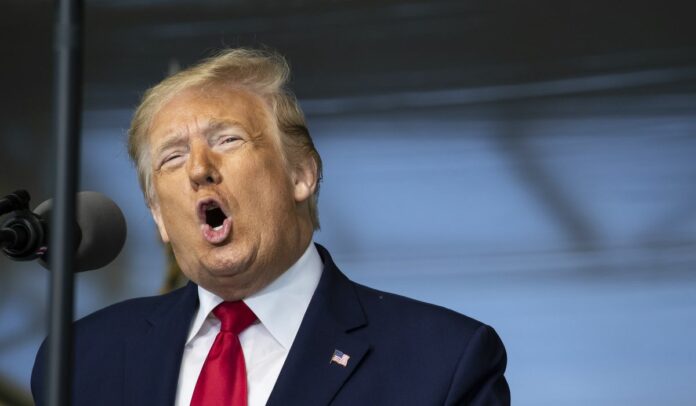A newly declassified intelligence document underscores the FBI’s absolute commitment to the discredited Christopher Steele dossier even to the point of providing the CIA its most damaging allegations against then-President-elect Trump.
The document is Annex A to the 2016 Intelligence Community Assessment (ICA) on Russia’s interference in the 2016 presidential election.
The FBI had obtained Mr. Steele’s dossier in September. Its top officials, including Director James B. Comey and Deputy Director Andrew McCabe, began to press the CIA and other agencies to include the paper in the ICA. As a compromise, CIA officials agreed to accept a synopsis — Annex A.
Director of National Intelligence John Ratcliffe declassified the document last week. The dossier was funded by the Democratic Party and the Clinton campaign. Government investigations have discredited its dozen or so anti-Trump claims.
However, in the fall 2016 the FBI was able to get the unfounded allegations inside the ICA, a historic intelligence report meant to meet the test of time in retelling Russian election meddling.
The FBI had the ICA report repeat allegations that Mr. Trump, as a hotel and golf course developer, maintained a secret relationship with the Kremlin.
Annex A says: “The most politically sensitive claims by the FBI source [Mr. Steele] alleged a close relationship between the President-elect and the Kremlin. The Source claimed the president-elect and his top campaign advisers knowingly worked with Russian officials to bolster his chances of beating Secretary [Hillary] Clinton, were fully knowledgeable of Russia direction of leaked Democratic emails and were offered financial compensation from Moscow.”
Annex A also says: “The FBI source claimed that secret meetings between the Kremlin and the president-elect team were handled by some of president-elect advisers, at least one of whom was allegedly offered remuneration for a policy change lifting sanctions on Russia.”
All of these claims were thoroughly disproven by special counsel Robert Mueller in his report. He found no election conspiracy. In fact, Mr. Trump appeared to have no history of Kremlin contacts.
Annex A described Mr. Steele as “an executive of a private business intelligence firm.” That would be Orbis Business Intelligence in London. Annex A said Mr. Steele assembled the dossier “on behalf of private clients.” It does not divulge their identities — the Democratic Party and the Clinton campaign — even though Mr. Steele later told investigations he told the FBI he was working for their law firm.
The FBI leadership’s persistence in persuading intelligence officials to fold-in dossier claims is one of several times the bureau showed complete loyalty to Mr. Steele.
χ At the time same officials were writing the ICA, the FBI used the dossier as the main piece of evidence to obtain the first of four wiretaps on Trump campaign volunteer Carter Page under the Foreign Intelligence Surveillance Act (FISA). Mr. Page was cleared by Mr. Mueller.
χ FBI headquarters repeatedly took in more dossier information during the fall from a Steele intermediary.
χ Mr. Comey took dossier material to the White House to brief President Obama’s inner circle.
χ Mr. Comey also brought the material to New York on Jan. 6 to brief the salacious parts about Moscow prostitutes directly to President-elect Trump. Afterwards, Mr. Comey traveled to the New York field office to fill in by tele-video conference the FBI team investigating the Trump campaign.
χ A gaggle of FBI agents met with Mr. Steele in October 2016 in Rome and offered him $50,000 to continue investigating Mr. Trump. The deal fell through when Mr. Steele broke protocol and sourced a story in Mother Jones magazine right before the election.
The FBI’s dossier back-and-forth with the intelligence community was documented in an April report by the Senate Select Committee on Intelligence.
“FBI officials told the Committee that they ‘would have had a major problem’ if Annex A had not been included, and that FBI believed they ‘had to put everything in,’” the Senate report said.
A bureau assistant director urged its inclusion even though agents did not “stand behind” the material.
“A summary of this material was included in Annex A as a compromise to the FBI’s insistence that the information was responsive to the presidential tasking,” the report states.






